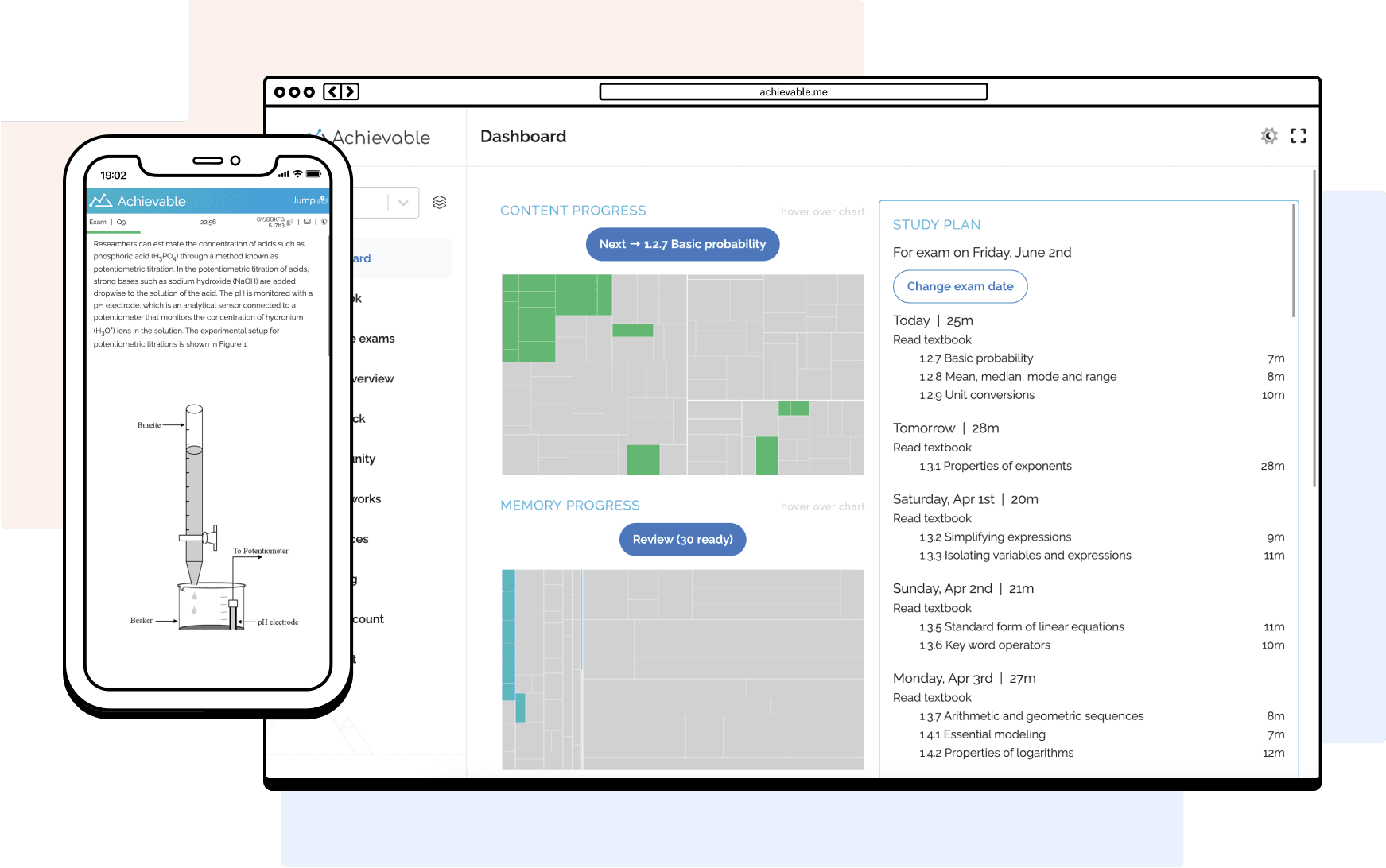
SAT FAQ
Answers to the most common questions about the SAT.

What's the difference between the SAT and the ACT?
The SAT and ACT cover similar topics but approach them differently and emphasize different skills. The SAT's two main sections, Reading and Writing, and Math, highlight the exam's focus on critical thinking, analytical reasoning, and problem-solving skills. The SAT's Reading and Writing section tests advanced language and reading comprehension abilities.
The ACT consists of four main sections: English, Math, Reading, and Science, with an optional Writing section. This broader range of subjects reflects the ACT's goal of evaluating a wider array of content knowledge, including scientific reasoning and interpretation. The ACT Science section is meant to challenge students' abilities to interpret, analyze, and understand scientific data in applied contexts.
The SAT's reading section features shorter passages than the ACT, with more advanced vocabulary. Both the SAT and ACT allow the use of a calculator on the math section.
Like the SAT, the ACT is accepted at most colleges and universities. Both exams are considered equivalent in college admissions, and there is no preference for one over the other. The decision on whether to take the SAT or the ACT is determined based on which exam's format and content best suits your skills and academic strengths.

How do you study for the SAT?
Here are the steps you can take to create an effective SAT study plan:
- If applicable, review your Preliminary SAT (PSAT) scores and performance. Understanding your results will help you determine your strengths and areas of improvement.
- Become familiar with the SAT format. Learn about the SAT, SAT sections, length, and question structure through trusted online sources like the College Board. Take a full-length, diagnostic exam to find out what your baseline score is and track your progress.
- Set a target score. Knowing the average scores of accepted students at colleges you're interested in will help you determine what score you should aim for. Setting a goal will help you stay on track and gauge how your studying should adapt to increase your score.
- Use trusted SAT study materials. Studying for the SAT takes more than reading a textbook. However, high-quality written materials will equip you with the foundational knowledge needed to tackle difficult SAT questions and concepts. Textbooks and informational materials provide you with best practices for studying, guides on how to use tools like the Desmos calculator and the Bluebook testing interface, and tips on effective test day strategies. Build study aids like SAT study guides and flash cards for yourself based on information from comprehensive resources.
- Answer practice questions. Drilling yourself through constant review of practice exercises will help you master the structure and content of each exam section. As you work your way through your SAT preparation, target your questions based on specific areas you need to improve.
- Take full-length practice exams. This is a critical step in any well-rounded SAT study program. Regularly taking full-length tests helps you build the skills and endurance needed to ace the exam on your official test day. It also provides you with score benchmarks and the ability to analyze which portions of the test you struggle with, allowing you to pinpoint exactly which questions to practice.
- Be intentional but measured. Most students devote about 10-20 hours of studying a week over the course of 2 to 6 months to preparing for the SAT. This can seem overwhelming, but it's absolutely doable with proper planning. Spread out your SAT prep across several weeks so you're working through your materials each day, rather than trying to cram everything you need to know the week before.

How long is the SAT?
The SAT takes 2 hours and 14 minutes to complete, not including a 10-minute break scheduled between each section. The two sections of the SAT are Reading and Writing, which is allotted 64 minutes, and Math, which is allotted 70 minutes. See our SAT Exam Info page for more details.

How many times can you take the SAT, and when should you take it?
There is no limit to the number of times you can take the SAT. Many students ( a little over half ) retake the SAT in order to get a better score. Many colleges "superscore" SAT scores, meaning that they take the best results by section from all of your attempts and use this as your final, composite score.
The best time to take your first SAT exam is the spring of your junior year in high school, preferably between March and May. This gives you plenty of time to prepare for the college admissions cycle, which begins in the fall of your senior year, and decide if you need to retake the test over the summer or early fall.

When do SAT scores come out?
The timeframe for SAT score releases depends on when and where you take your test. Proctored SATs taken on the weekend are released 2-4 weeks after test day. For those who take their SAT in school (October only), you can expect scores to be available for viewing the next day, and electronic score reports are released about a week after the exam date.

What is the average SAT score?
The average SAT score is around 1050, so a score higher than this is above-average. A score of 1350 or higher is in the top 10% of SAT takers, but a good SAT score for you may look different based on the schools you are targeting.

How do I improve my SAT score?
While all schools have different SAT score ranges, achieving a high SAT score paves the way for admission to top programs and merit scholarships. Strong SAT scores make you a more competitive candidate and strengthen your overall application. To improve your score, follow our key SAT study tips: complete lots of practice questions, target your studies to focus on areas of improvement, take practice exams on a regular basis, and follow your progress.
On test day, make sure you're well-rested and arrive at the testing site early. Last-minute jitters are normal, but try your best to approach your test in a calm and collected manner so you can maximize your focus (and your score).

Is there an essay on the SAT?
The SAT essay section used to be a mandatory part of the exam. Since the launch of the Digital SAT, the essay section has been phased out and is now only available in certain states where it's required for SAT School Day administrations. The essay section includes a passage that test takers must read, analyze, and write a response to based on a prompt. It's scored on a scale from 2 to 8, and the score is separate from your SAT total score.
If your school participates in in-school SAT testing, ask your guidance counselor if the essay section will be part of the test. This will add an additional 50 minutes to the exam time.

Hit your target score
Achievable is the best SAT exam prep course: effective, personalized, and convenient. With Achievable, you'll spend less time studying and hit your target score with confidence.